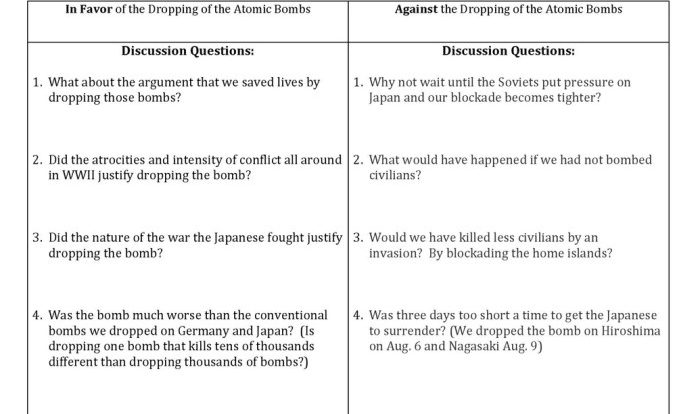Long term causes of ww2 in europe, the narrative unfolds in a compelling and distinctive manner, drawing readers into a story that promises to be both engaging and uniquely memorable.
The political, economic, ideological, military, colonial, and imperial factors that shaped the landscape of Europe in the years leading up to World War II were complex and intertwined. These long-term causes laid the groundwork for a conflict that would forever alter the course of human history.
Political and Diplomatic Factors
The political and diplomatic landscape of Europe in the aftermath of World War I sowed the seeds of conflict that ultimately culminated in World War II. The Treaty of Versailles, punitive in nature, imposed harsh reparations and territorial losses on Germany, creating a deep sense of resentment and a desire for revenge.
Rise of Nationalism and Militarism
Nationalism and militarism surged across Europe, particularly in Germany, Italy, and Japan. These ideologies glorified the nation and its military, fostering a belief in national superiority and the need for territorial expansion. In Germany, the Nazi Party, led by Adolf Hitler, exploited this sentiment, promising to restore Germany’s honor and avenge its humiliation.
Diplomatic Failures
A series of diplomatic failures further contributed to the outbreak of war. The Munich Agreement of 1938, brokered by British Prime Minister Neville Chamberlain, appeased Hitler’s demands for the Sudetenland, a region of Czechoslovakia with a large German population. This act of appeasement emboldened Hitler and weakened the resolve of other European powers to resist his aggression.
Economic Factors
The global economic crisis of the 1930s had a profound impact on European economies, exacerbating tensions and contributing to the outbreak of World War II.
The Great Depression
The Great Depression, triggered by the 1929 stock market crash, led to widespread unemployment, business failures, and a sharp decline in international trade. This economic crisis created fertile ground for political instability and extremist ideologies, which exploited the widespread economic hardship.
Reparations and Economic Sanctions
The Treaty of Versailles imposed heavy reparations on Germany, which crippled its economy and created resentment among its citizens. Similarly, economic sanctions imposed on Italy and Japan further strained their economies and contributed to their aggressive expansionist policies.
Economic Motivations for Expansion, Long term causes of ww2 in europe
Faced with economic stagnation and limited resources, some European countries sought to expand their territories and acquire raw materials. Germany, Italy, and Japan were particularly motivated by economic factors to pursue expansionist policies.
Ideological Factors: Long Term Causes Of Ww2 In Europe
The rise of ideologies such as fascism, communism, and democracy shaped the political landscape of Europe, leading to polarization and conflict.
Fascism and Communism
Fascism, with its emphasis on nationalism, authoritarianism, and militarism, appealed to those seeking a strong leader and a sense of national unity. Communism, on the other hand, promoted equality, collectivism, and a classless society, appealing to the working class and those disenchanted with capitalism.
Polarization of Societies
The spread of fascist and communist propaganda contributed to the polarization of societies. Fascist propaganda glorified the nation and its leader, while communist propaganda demonized capitalism and the bourgeoisie. This created an atmosphere of division and mistrust, fueling tensions and contributing to the outbreak of war.
Anti-Semitism and Racism
Anti-Semitism and racism played a significant role in fueling tensions and creating a climate of intolerance. Fascist ideology promoted anti-Semitism, blaming Jews for many of society’s problems. Nazi Germany’s persecution of Jews culminated in the Holocaust, a horrific genocide that claimed the lives of millions.
Military Factors
The years leading up to World War II witnessed a rapid arms race and technological advancements that significantly altered the military landscape of Europe. The development of new weapons, such as aircraft, tanks, and submarines, transformed the nature of warfare and created the potential for unprecedented destruction.
Arms Race and Technological Advancements
The arms race was fueled by a combination of fear, suspicion, and a desire for military superiority among the major European powers. Germany, in particular, embarked on a massive rearmament program under the leadership of Adolf Hitler, violating the terms of the Treaty of Versailles.
Other countries, such as France, Britain, and the Soviet Union, responded by increasing their own military spending and developing new weapons systems.
Military Strategies and Doctrines
The different European powers adopted distinct military strategies and doctrines. Germany, for example, emphasized the concept of “blitzkrieg,” or lightning war, which relied on rapid movement, air power, and the use of armored forces to overwhelm the enemy. France, on the other hand, focused on building a strong defensive line known as the Maginot Line, while Britain relied on its naval power and the Royal Air Force.
Military Alliances and Collective Security
In an attempt to prevent the outbreak of another devastating war, European powers entered into a series of military alliances. The most significant of these were the Axis powers (Germany, Italy, and Japan) and the Allied powers (France, Britain, and the Soviet Union).
However, the failure of collective security efforts, such as the League of Nations, left Europe vulnerable to aggression.
Colonialism and Imperialism
Colonialism and imperialism played a significant role in the rise of tensions and rivalries among European powers, contributing to the outbreak of World War II. The expansion of European powers into Africa, Asia, and other regions led to the acquisition of colonies and the exploitation of their resources.
This fueled competition and rivalry among the powers, as they sought to secure and expand their colonial empires.
Rise of Anti-Colonial Movements
The rise of anti-colonial movements and the desire for self-determination among colonized peoples also contributed to tensions. As colonies began to assert their independence, European powers faced resistance and challenges to their authority. This led to conflicts and further strained relations between European nations.
Scramble for Resources
The scramble for resources, particularly raw materials and markets, intensified competition among European powers. The need to secure access to these resources fueled expansionist policies and territorial disputes, which further contributed to the buildup of tensions.
FAQ Resource
What were the key political factors that contributed to the outbreak of World War II in Europe?
The Treaty of Versailles, the rise of nationalism and militarism, and diplomatic failures such as the Munich Agreement were all key political factors that contributed to the outbreak of World War II in Europe.
How did the global economic crisis of the 1930s contribute to the outbreak of World War II in Europe?
The global economic crisis of the 1930s led to widespread unemployment and poverty in Europe. This economic instability created a climate of desperation and resentment that made people more susceptible to the appeals of extremist ideologies.
What role did ideology play in the outbreak of World War II in Europe?
Ideology played a major role in the outbreak of World War II in Europe. The spread of fascist and communist propaganda contributed to the polarization of societies and created a climate of intolerance and mistrust.

